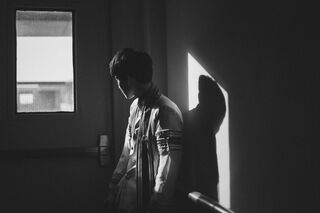Relationships
Parental Love and Abuse in the Asian Community
Love and abuse are not mutually exclusive.
Posted January 15, 2021 Reviewed by Abigail Fagan

When Asian-American clients come into counseling, it's quite typical during their early stages of therapy to have a very black and white way of thinking about how they perceive "love" from their traditional Asian parents. In other words, love and abuse to them are separate entities and can not coexist. Later they discover these are not mutually exclusive and painfully come to the realization that their parents may have tried their best to "love" them but also were abusive, whether intentional or otherwise.
So why is this so difficult for Asian clients to see earlier in treatment? Part of the answer lies in the Asian collectivist mindset to honor your ancestors, elders, and parents above all else. This means that no word, deed, or gesture can be used to bring any form of negativity towards your parents. This message is underscored by immigrant Asian parents when they guilt-trip and pepper their children with phrases such as, "How can you be so selfish after all we've sacrificed for you?", "Did you know mom and dad left (country of origin) so that you can succeed?", or "Mom and dad work all these hours just for you!"
In addition, Asian-American children are told how they are loved by their parents by their references to parental sacrifice and long hours toiling at work. The paradox and tension come up in counseling when I hear the loving parents also exhibited abusive behaviors (physical and/or psychological). They include, but are not limited to, the following:
Physical
- Pinch, squeeze, slap
- Shove, shake
- Hit, kick
- Choke
- Targeted hitting
- Household items used as weapons
- Restrained and hit
Psychological:
- Ignores the child’s feelings
- Humiliation (private or public)
- Hurtful jokes and insults
- Yelling
- Name-calling
- Threats of abandonment
- Degrades the child
- Critical comparisons with other children and/or siblings
- Shaming the child's body image
As clients talk about the emotional and/or physical abuse, they will often defend their parents saying something to the effect of, "They did the best they could," or "I knew they still loved me." It isn't until more trust is developed that I can confront their inability to see how abuse can and often does happen within "loving" households and relationships in general. In other words, just because someone "loves" you doesn't mean it's a healthy relationship free of abuse. Furthermore, within traditional Asian households, much of the abuse may not be considered a form of parental love such as excessive physical or verbal abuse as a misguided form of encouragement, discipline, or teaching.
Still, no matter how misinformed, I tell clients that abuse is abuse and needs to be acknowledged, grieved, and understood so it doesn't carry over to the next generation. In those moments of validation, recognition, and understanding, the space for true healing occurs. No longer do they turn a blind eye to the past, but they can hold the uneasy reality that love and abuse can happen under the same roof.
References
Sam also speaks on Asian cultural issues. For more information, please go to his speaking website.


